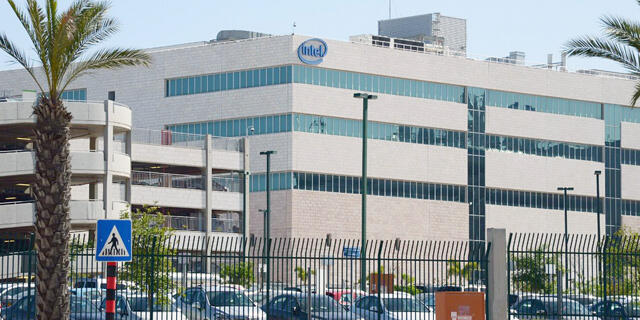- Get link
- X
- Other Apps
Intel to Receive $3.2 Billion Government Grant to Set Up $25 Billion Israel Chip Plant | LAPTOPROSCONS
- Get link
- X
- Other Apps
KEYWORDS:
2. Significance of the grant and plant for Intel
3. Impact on the Israeli economy
4. Technological advancements and innovation
5. Job creation and employment opportunities
6. Environmental considerations and sustainability
7. Intel's commitment to the Israeli market
8. Potential challenges and risks
9. Collaboration with local suppliers and businesses
10. Government support and incentives
11. Intel's global strategy and positioning
12. Competitive landscape and industry implications
13. Future prospects and expansion plans
14. Conclusion
Intel to Receive $3.2 Billion Government Grant to Set Up $25 Billion Israel Chip Plant
Introduction
Intel's recent announcement of receiving a $3.2 billion grant for setting up a $25 billion chip plant in southern Israel has garnered significant attention in the tech and business communities. This article delves into the implications and significance of this development.
Significance for Intel
The decision to establish a high-value chip plant in Israel underscores Intel's commitment to expanding its global manufacturing capabilities. This move aligns with Intel's strategic goal of enhancing its semiconductor production capacity and technological prowess.
Impact on the Israeli Economy
The construction of the chip plant is poised to have a substantial impact on the Israeli economy, contributing to job creation, technology transfer, and the development of a robust semiconductor ecosystem in the region.
Technological Advancements and Innovation
The establishment of a state-of-the-art chip plant represents a significant leap forward in technological advancements and innovation within the semiconductor industry. This initiative is set to elevate Israel's position as a hub for cutting-edge technological developments.
Job Creation and Employment Opportunities
The project is expected to create a substantial number of employment opportunities, spanning a wide range of skill sets, thereby contributing to the growth and diversification of the local workforce.
Environmental Considerations and Sustainability
Intel's commitment to environmental sustainability in the construction and operation of the chip plant is crucial. The company's focus on sustainable practices and energy-efficient technologies will be pivotal in minimizing the environmental impact.
Intel's Commitment to the Israeli Market
The substantial investment and procurement commitments by Intel underscore the company's long-term commitment to the Israeli market, signaling confidence in the region's potential for growth and innovation.
Potential Challenges and Risks
Despite the promising prospects, there may be challenges and risks associated with the project, including regulatory complexities, geopolitical factors, and market dynamics that need to be navigated effectively.
Collaboration with Local Suppliers and Businesses
Intel's pledge to procure goods and services from Israeli suppliers will foster collaboration and partnerships with local businesses, thereby creating a ripple effect of economic opportunities and knowledge transfer.
Government Support and Incentives
The substantial government grant and support for the chip plant project reflect the strategic alignment between Intel and the Israeli government, highlighting the collaborative efforts to drive technological advancement and economic growth.
Intel's Global Strategy and Positioning
The establishment of the chip plant in Israel forms a crucial part of Intel's global strategy, aiming to strengthen its position in the semiconductor industry and cater to the increasing demand for advanced chips.
Competitive Landscape and Industry Implications
The move by Intel is likely to influence the competitive landscape of the semiconductor industry, potentially prompting other players to reassess their strategies and investments in manufacturing capabilities.
Future Prospects and Expansion Plans
The chip plant project sets the stage for potential future expansion and diversification of Intel's operations in Israel, paving the way for further technological advancements and market opportunities.
Conclusion
In conclusion, Intel's receipt of the government grant to establish a $25 billion chip plant in Israel marks a significant milestone in the company's global expansion and underscores its commitment to technological innovation and economic growth. The project holds the promise of fostering a thriving semiconductor ecosystem and contributing to the advancement of the Israeli economy.
FAQs:
1. Will the chip plant project have a significant impact on employment in Israel?
2. What are the key environmental considerations in the construction and operation of the chip plant?
3. How does Intel's investment in Israel align with its global business strategy?
4. What are the potential challenges that Intel may face in setting up the chip plant?
5. How will the chip plant project influence the competitive dynamics of the semiconductor industry?

Comments
Post a Comment